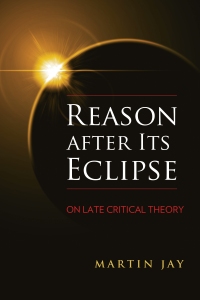We are excited to announce six books forthcoming this month!
THE BLUE HOUR
Jennifer Whitaker
Winner of the Brittingham Prize in Poetry
Selected by Denise Duhamel
Fairy tales both familiar and obscure create a threshold, and the The Blue Hour pulls us over it. With precise language and rich detail, these poems unflinchingly create an eerie world marked by abuse, asking readers not just to bear witness but to try to understand how we make meaning in the face of the meaningless violence.

THE BOOK OF HULGA
Rita Mae Reese
Winner of the Felix Pollak Prize in Poetry
Selected by Denise Duhamel
The Book of Hulga speculates—with humor, tenderness, and a brutal precision—on a character that Flannery O’Connor envisioned but did not live long enough to write: “the angular intellectual proud woman approaching God inch by inch with ground teeth.” These striking poems look to the same sources that O’Connor sought out, from Gerard Manley Hopkins to Edgar Allan Poe to Simone Weil. Original illustrations by Julie Franki further illuminate Reese’s imaginative verse biography of a modern-day hillbilly saint.

REASON AFTER ITS ECLIPSE
On Late Critical Theory
Martin Jay
Martin Jay tackles a question as old as Plato and still pressing today: what is reason, and what roles does and should it have in human endeavor? Applying the tools of intellectual history, Reason after Its Eclipse examines the overlapping, but not fully compatible, meanings that have accrued to the term “reason” over two millennia, homing in on moments of crisis, critique, and defense of reason.

FEEDING MANILA IN PEACE AND WAR, 1850–1945
Daniel F. Doeppers
Policymakers and scholars have come to realize that getting food, water, and services to the millions who live in the world’s few dozen megacities is one of the twenty-first century’s most formidable challenges. As these populations continue to grow, apocalyptic scenarios—sprawling slums plagued by hunger, disease, and social disarray—become increasingly plausible. In Feeding Manila in Peace and War, 1850–1945, Daniel F. Doeppers traces nearly a century in the life of Manila, one of the world’s largest cities, to show how it grew and what sustained it.

SEVEN YEARS OF GRACE
The Inspired Mission of Achsa W. Sprague
Sara Rath
Distributed for the Vermont Historical Society
Seven Years of Grace is a dramatized account of the life of Achsa Sprague (1827–1862), who in the decade preceding the American Civil War lectured to audiences of thousands on Spiritualism, the abolition of slavery, women’s rights, and prison reform. She presented herself as a medium, lecturing and singing hymns in a state of trance. Alone on stage, she drew acclaim and admiration but also jeers, ridicule, and condemnation. A skeptic in Oswego, New York, asked, “Why is it that all the world should run nightly mad to hear her in a pretended trance?” A Milwaukee newspaper proclaimed her words “profound twaddle from beginning to end.” Yet Achsa’s crowds continued to grow in size and enthusiasm. Grounded in the extensive collection of Achsa Sprague’s papers at the Vermont Historical Society, Seven Years of Grace is both a fascinating tale and a revealing window into the past.

DEATH STALKS DOOR COUNTY
Patricia Skalka
The first book in the Dave Cubiak Door County Mystery Series, now in paperback
Six deaths. A grief-stricken investigator. Betrayal. Why?
“Can a big-city cop solve a series of murders whose only witnesses may be the hemlocks? An atmospheric debut.”—Kirkus Reviews
“Murder seems unseemly in Door County, a peninsula covered in forests, lined by beaches, and filled with summer cabins and tourist resorts. That’s the hook for murder-thriller Death Stalks Door County, the first in a series involving ranger Dave Cubiak, a former Chicago homicide detective.”—Milwaukee Shepherd Express
Read more here.


